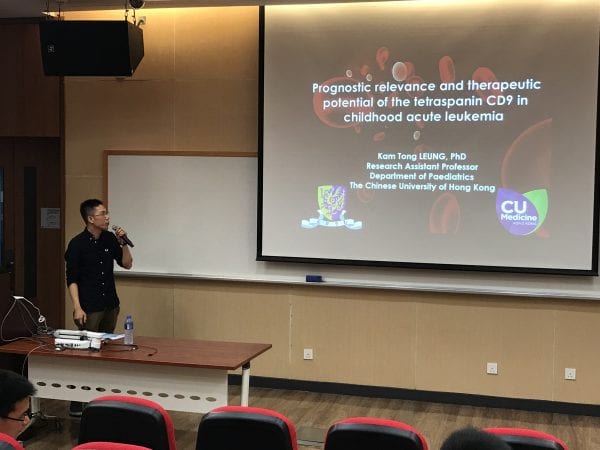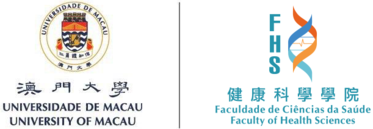
| Talk title | Prognostic Relevance and Therapeutic Potential of the Tetraspanin CD9 in Childhood Acute Leukemia |
| Speaker | Prof. Kamtong LEUNG Research Assistant Professor |
| Date & Time | 29 March 2019 (Mon) 14:30-15:30 |
| Venue | Room G004, E12 Building (University of Macau) |
| Abstract | Acute leukemia is the most common malignancy and the leading cause of cancer-related death in children. Despite advances in risk-adapted multi-agent chemotherapy, specific subtypes of high-risk and relapsed/refractory cases have been associated with dismal outcomes, underscoring the need for development of novel and effective treatment approaches. We previously reported that CD9, a tetraspanin family protein, governed homing and engraftment of human hematopoietic stem cells (Leung et al, Blood, 2011), but its role in pediatric acute leukemia remains completely unknown. In a patient cohort of B-precursor acute lymphoblastic leukemia (B-ALL), we identified that CD9 positivity independently predicted inferior survival outcomes, and could be applied with established prognostic features for refinement of risk stratification. Significantly, administration of CD9 antibody, as a single-agent or in combination of conventional chemotherapy, substantially suppressed disease progression of high-risk and refractory B-ALL in patient-derived xenografts (Leung et al, Leukemia, 2019, in revision). In acute myeloid leukemia (AML), CD9 was epigenetically silenced and conferred poor patient survival. Reactivation of CD9 inhibited leukemic cell proliferation, enhanced chemosensitivity and suppressed AML progression in the NOD/SCID xenograft model (Man et al, unpublished data). Collectively, our studies reveal unique function and prognostic impact of CD9 in two distinct leukemia subtypes, and lay the foundation for clinical development of CD9-targeted therapy for high-risk pediatric acute leukemia |

